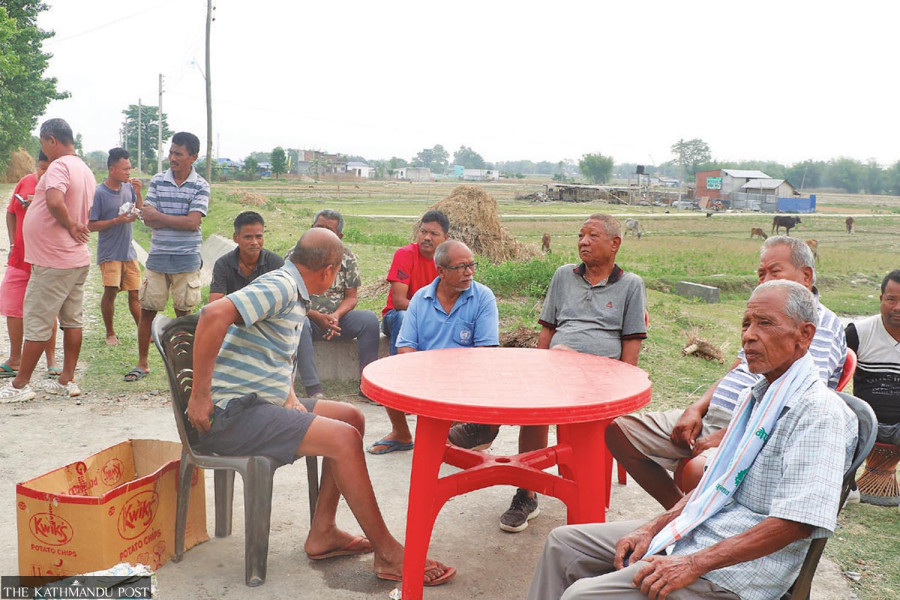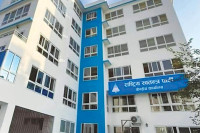Politics
In Madhesh Province, the political landscape is changing
Analysts say the CPN-UML will likely gain from the deep divisions in the Madhesi parties and the alliance politics of five ruling forces.
Anil Giri
Madhes has traditionally been a Nepali Congress bastion. After the first Madhes uprising in 2007, Madhes-based parties were expected to gain more ground. The grand old party, however, continued to get the support of the Madhesi people, which was evident from the 2017 local elections.
The Congress won 40 local units in the province in 2017 elections. Of the 136 local units in the province, the Upendra Yadav-led Sanghiya Samajbadi Forum won 26 seats, securing second position, while the Rastriya Janata Party led by Mahanta Thakur stood third with wins in 25 local units.
The CPN (Maoist Centre) won 21 local units and the CPN-UML was in the fifth position with wins in 18 local units. As Bijay Kumar Gachhadar’s Nepal Loktantrik Forum, which had won three local units, merged with the Congress within a month after the elections, the party further increased its strength.
As the country goes to polls this Friday, political analysts and party leaders say that the political landscape is going to change with the UML making inroads into Madhes and the Janamat Party, led by CK Raut who once championed a secessionist movement, emerging in the scene.
“I see the UML making remarkable progress in the upcoming local elections while the Yadav-led Janata Samajbadi Party (JSP) too will strengthen its position,” Tula Narayan Shah, a political observer and writer who follows Madhes politics closely, told the Post. “The Loktantrik Samajbadi Party (LSP) and the Maoist Centre will be the major losers.”
The UML has long been seen as an anti-Madhes force.
The UML had maintained a tough position on Madhes and its leaders in the lead up to the constitution promulgation. UML chair KP Sharma Oli had also made some strong statements against the Madhesis’ protests.
So much so that the party faced a tough time holding rallies and mass gatherings during the local and general elections in 2017.
Shah says the situation, however, has changed in UML’s favour in the last five years. Though the split of the Madhav Nepal faction has inflicted some harm, the entry of Prabhu Sah from the Maoist Centre is a big compensation, according to him.
The UML has also welcomed 14 mayors or rural municipality chairs from other parties.
“There were obstructions for the party during campaigns last elections, but not this time,” said Shah. “Many local-level representatives have joined the party in the last few months making it a competitive force.”
The source of Janata Samajbadi’s strength, however, is a weakened Loktantrik Samajbadi Party of Mahantha Thakur.
The Yadav-led Sanghiya Samajbadi Party and Thakur’s Rastriya Janata Party had merged to form JSP in April 2020. The united party, however, split in July last year. Yadav was awarded the Janata Samajbadi by the Election Commission, while Thakur formed the Loktantrik Samajbadi Party.
Many influential leaders from the party chose to stay with Yadav. In addition, Brikhesh Chandra Lal, another influential leader in the Loktantrik Samajbadi, also abandoned the party, adding to Thakur’s woes. Lal has revived the Tarai-Madhes Loktantrik Party, which Thakur once led.
Chandra Kishore, a political analyst who also follows Madhes politics closely, also said the UML has gained ground in the Madhes while the Loktantrik Samajbadi Party’s fate is at stake.
“It is almost certain that the UML will increase its space in Madhes while the LSP is going to be a big loser,” he told the Post.
However, unlike Shah, who sees the JSP and the Congress too consolidating their positions, Chandra Kishore says they too will suffer while the Maoist Centre will make some gains.
“The sentiment of Madhes uprising and its spirit were fresh in the minds of the people during the last elections. But this has faded now which will pose a challenge for the Janata Samajbadi Party,” he said. “The Congress has abandoned its traditional vote banks like Birgunj and Janakpur and this does not send a good message either. I think the Maoist Centre and the UML will increase their shares.”
Sharat Singh Bhandari, a senior Lokatantrik Samajbadi leader from Mahottari, believes his party is in a much better position. He, however, admitted that the UML has come strongly.
“The UML is doing good. Due to the alliance with Nepali Congress, the positions of the Maoist Centre and the Janata Samajbadi Party have become unpredictable,” Bhandari told the Post. “Janata Samajbadi holds sway in the Yadav constituencies, but it too is divided. There will be a tough competition.”
According to Bhandari, in 2017 his party was not prepared as it decided to participate in the elections in the last hour.
The Madhes-based parties which had opposed the constitution had decided to boycott the local elections, forcing the Election Commission to hold the polls in three phases. The elections in Madhes were held on September 18.
“Now the party has put in a lot of effort which is going to pay off,” said Bhandari.
As far as the Congress is concerned, alliance politics is likely to cost it dearly.
According to Chandra Kishore, local Congress leaders are not happy as the party has conceded some of the areas where it had strong presence like Birgunj Metropolitan City and Janakpur Sub-metropolitan City to the Janata Samajbadi Party.
“There are complaints over ticket distributions within the party. This has not given a good message to party supporters,” said a Nepali Congress Central Working Committee member. “Senior leaders like Bimalendra Nidhi are not happy with the ticket distribution in his own hometown Janakpur.”
Congress leaders are concerned that the rival parties could benefit due to dissatisfaction within the party.
As the party is contesting elections under an alliance with the Janata Samajbadi, the Maoist Centre and the CPN (Unified Socialist), the UML is likely to benefit.
“We are hoping to win 40 percent local units this time,” said Raghubir Mahaseth, who is leading the UML’s election campaign in Madhesh Province. “We are in a very strong position.”
According to Mahaseth, along with Birgunj, the UML’s odds are better in three other sub-metropolitan cities—Janakpur, Jitpur-Simara and Kalaiya. Vijay Sarawagi, Birgunj’s incumbent Mayor who had won last time on a Sanghiya Samajbadi Party ticket, has joined the UML and is seeking a second term.
Mahaseth claimed that earlier the UML’s presence was limited along the east-west highway inhabited by the people from the mid-hills. But over the years the party has built organisations and expanded committees, said Mahaseth.
“The UML was always strong along the highway. We will win big along the highway and penetrate the core Madhes region as well,” he claimed. “There is no doubt that our main competitor is the Congress. Out of two Madhes-based parties, the Yadav-led Janata Samajbadi is doing well.”




 21.24°C Kathmandu
21.24°C Kathmandu















